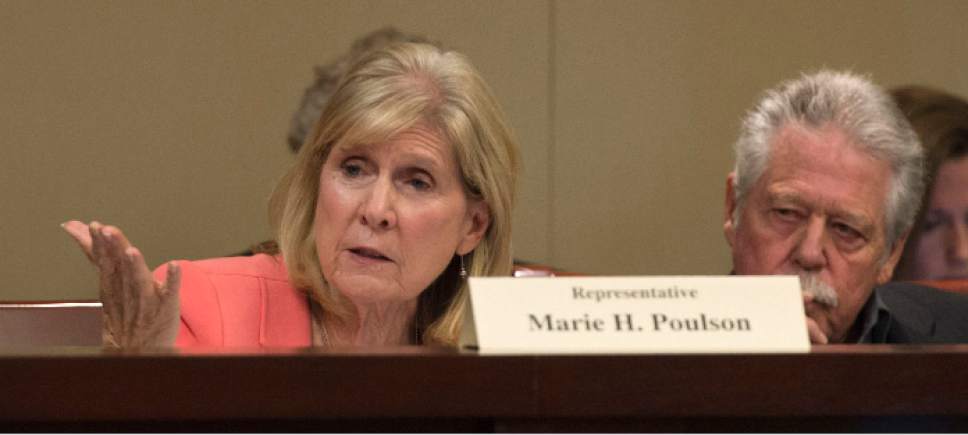This is an archived article that was published on sltrib.com in 2017, and information in the article may be outdated. It is provided only for personal research purposes and may not be reprinted.
Utah's school grading system launched with good intentions of helping schools, Rep. Marie Poulson, D-Cottonwood Heights, said Monday,
But six years of the controversial and perennially-altered program has produced little more than a socio-economic survey of students and frustrating moving targets for teachers, she said.
"School grading has become the public shaming of hardworking schools and educators," Poulson said. "Basically, it's a zip code system."
On Monday, members of the House Education Committee sided with Poulson, voting 6-4 in favor of her bill to end the practice of assigning letter grades to public schools.
Her bill, HB241, would maintain a statewide school accountability system. But rather than measure school performance based on standardized testing, her bill would use additional metrics like Advanced Placement participation and elementary reading levels to rate schools, without a letter and with consideration given to campuses with high levels of at-risk students.
"It gives the opportunity to look at these schools that have special challenges in a different way," she said. "
Since it was first approved by lawmakers in 2011, Utah's school grading law has been altered every year.
The grading scale was adjusted down in 2014 to account for lower student scores on the SAGE testing system. Then last year, lawmakers created an automatic adjustment that would raise the bar for each grade level whenever too many schools received a grade of "A" or "B".
After the state showed widespread improvement on SAGE last year, several schools saw their grades lowered as the thresholds increased.
Terry Shoemaker, executive director of the Utah School Superintendents Association, said the grading system was intended to help school administrators improve on weaknesses.
But the string of arbitrary adjustments, he said, undercut the value of the grading system.
"The targets got moved and moved and moved," he said. "People got discouraged and stopped trying."
Heidi Matthews, president of the Utah Education Association, described the grading system as "alienating" and "demeaning."
She said the grades stigmatize schools and neighborhoods, while failing to capture the realities within Utah classrooms.
"The only people that I know who are happy about grades are the Board of Realtors," she said.
Poulson's bill faces an uphill climb to reach the governor's desk. If successful in the House, the bill would likely face stronger opposition in the Senate, where members are typically more supportive of school grading and where the grading law's original sponsor, Sen. Wayne Niederhauser, R-Sandy, currently serves as president.
But Poulson said the program has failed to deliver on its promises, while generating opposition among educators.
"We need to have the political courage to step up and reassess and look at it and make changes when we've taken the wrong turn," she said.
Twitter: @bjaminwood



